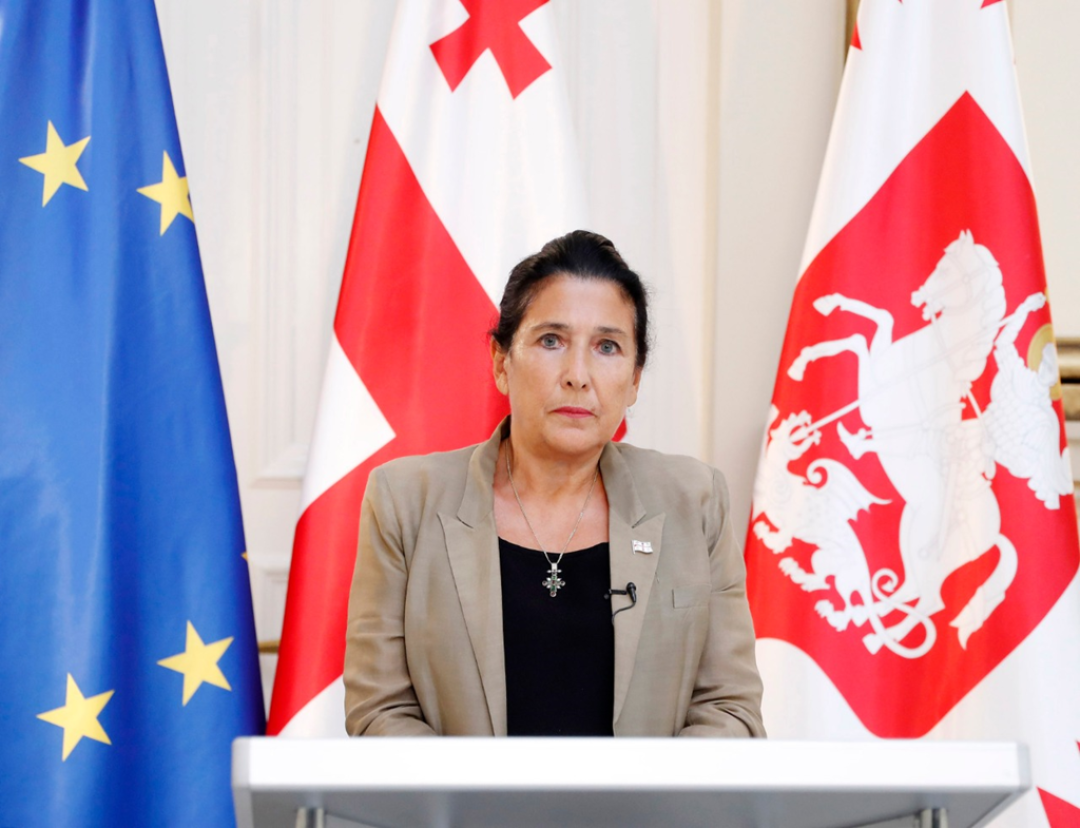
Zourabichvili Highlights Threats to EU Integration from Ruling Party Policies

On October 3, the Georgian President's Press Office released an interview with Martin Fornusek from The Kyiv Independent, focusing on the Warsaw Security Forum and the broader context of Western support for Ukraine. In the interview, President Salome Zourabichvili addressed questions about the recent passage of the "Foreign Agents" law and anti-LGBT legislation by the ruling party, laws she noted were reminiscent of Russian policy. Zourabichvili emphasized her opposition to these laws, stating that responsibility for them lies with the lawmakers who passed them, not with her. She expressed concern over the negative impact such legislation could have on civil society and election monitoring organizations, especially ahead of the upcoming elections.
Zourabichvili remarked that Georgia, once considered a frontrunner for EU membership, had stumbled in its path due to the government's failure to meet key EU recommendations. Despite Georgia achieving candidate status, she noted an increase in anti-European and anti-American rhetoric within the ruling party. She framed the upcoming parliamentary elections as a quasi-referendum on Georgia's future, suggesting that voters would be choosing between European integration and a slide towards Russian influence.
When asked about relations with Ukraine, Zourabichvili distinguished between the ruling party's position and the stance of the Georgian population, which remains strongly supportive of Ukraine. She attributed the recent strain in relations to the ruling party’s use of war footage in its campaign ads, which caused public discontent.
Later that day, the Office of the Georgian President released another interview with Euronews, in which Zourabichvili reiterated the significance of the upcoming elections for Georgia's European trajectory. She stated that these elections would be pivotal in determining whether Georgia continues on its path toward EU integration, highlighting the necessity of quickly resuming accession talks if pro-European parties win. Zourabichvili criticized the government's pro-Russian shift and expressed disappointment with the EU’s decision to freeze negotiations due to the controversial legislation.
In response to questions about forming coalitions, she suggested the possibility of establishing a technical government focused on advancing Georgia's European agenda, acknowledging the difficulties posed by the fragmented opposition. Zourabichvili expressed hope for unity among pro-European parties, aiming for a coordinated action plan to effectively engage with the EU.
See Also


Mirzoyan Meets US Deputy Assistant Secretary Joshua Huck

Azerbaijani President Holds Talks with UAE and German Business Delegations on Economic Cooperation

Grigoryan Confirms Armenia’s Readiness to Dissolve OSCE Minsk Group Upon Peace Treaty Signing

Azerbaijani Official Warns of Ecological Risks to Caspian Sea, Similar to Lake Urmia and Aral Sea

